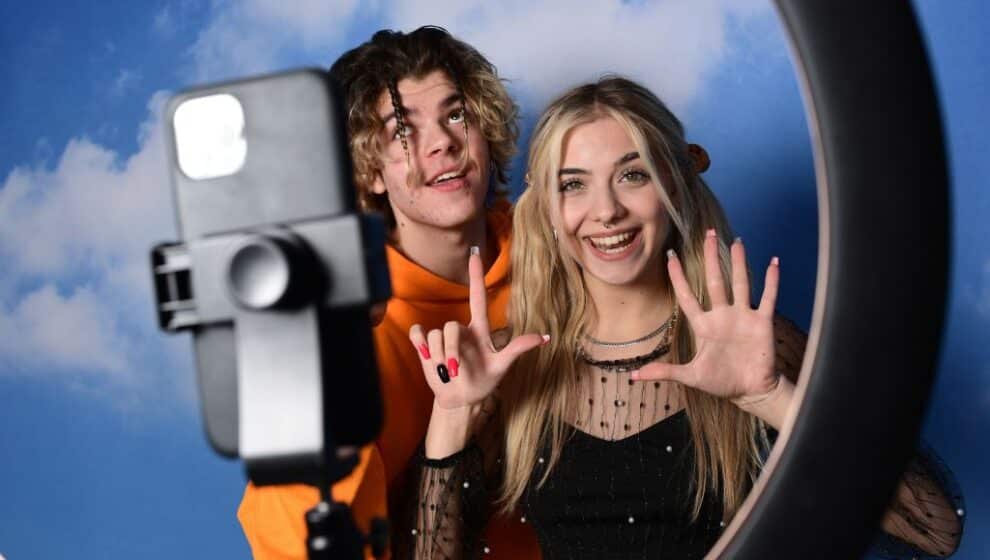The TikTok “For You” page is supposed to be based on a user’s preferences and likes, but a recent discovery shows the platform’s managers can push their own agendas.
Key Details
- The process of making a video more popular is known as “heating” within the company.
- Videos become viral when thousands, often millions, of users share and like a video across at least one platform. Users supposedly had control of what became popular, but new reports from TikTok show that employees have more direct control when determining what’s popular.
- According to documents obtained by Forbes and at least six current and former TikTok and ByteDance employees, staff at the Chinese-based social-media company can select certain videos to get a boost.
- “The heating feature refers to boosting videos into the For You feed through operation intervention to achieve a certain number of video views. The total video views of heated videos accounts for a large portion of the daily total video views, around 1-2%, which can have a significant impact on overall core metrics,” according to an internal TikTok document titled MINT Heating Playbook.
- Many social-media sites select certain content to get an extra boost, however, other companies frequently label this content as explicitly promoted. TikTok has never done so.
- Forbes reports that TikTok employees have used heating to incentivize influencers and particular brands to join partnerships in exchange for more view counts.
Why it’s news
Users tend to think of their “for you” feed as personalized to their preferred viewing experiences, but the revelation that TikTok has been controlling what’s popular shatters this illusion. Hand-picked promoted content also strongly resembled unlabeled advertising, leaving viewers guessing whether or not the content they see is an ad or entertainment.
Not only are users unable to determine what content is paid for, but TikTok employees have also abused their ability to promote specific content. At least three employees recounted instances when a staff member abused their privileges, Forbes reports. One claimed that employees had used employee access to heat their own or their spouses’ accounts. This is officially against TikTok policy.
At least once, this misuse of the heating tool resulted in an account garnering 3 million views. Accounts able to hold on to such a large following can monetize their content.
When abiding by company policy, staff at TikTok and ByteDance are given a fair amount of discretionary power when choosing which accounts to heat. In the document, TikTok Heating Policy, Forbes reports that employees are instructed to use heating to “attract influencers” or “promote diverse content.” While these instructions sound fairly mundane, the direct to “push important information” and “promote relevant videos that were missed by the recommended algorithms” suggest a more controlled and tailored general content output.
In response to the accusations that TikTok employees have direct control of the algorithm, TikTok spokesperson Jamie Favazza said, “We promote some videos to help diversify the content experience and introduce celebrities and emerging creators to the TikTok community. Only a few people, based in the U.S., have the ability to approve content for promotion in the U.S., and that content makes up approximately .002% of videos in For You feeds.”
Backing up a bit
Careful curation of a social media feed isn’t surprising to avid social-media users, but the extent to which TikTok allegedly controls a user’s viewing experience could add support to claims that the Chinese-based social-media app is intentionally controlling content viewers outside of China see.
Employees promoting their friends or their own accounts is mildly concerning—especially when popular users can make money off of accounts—but reports from last year showed that Chinese state media has a strong influence over the staff at TikTok and ByteDance.
An analysis of LinkedIn profiles has revealed that 300 TikTok employees once worked for the Chinese state media. Forbes reviewed hundreds of LinkedIn profiles of current employees of TikTok and ByteDance, the company that owns the site, finding that 300 of them were once Chinese state media employees.
Of these profiles, 23 were managing “content partnerships, public affairs, corporate social responsibility, and media cooperation.” Fifteen of the profiles indicate that the employees are also currently employed by Chinese state media groups, several of which are identified by the State Department as extensions of the Chinese government.
Concerns around data safety and security have been growing, resulting in TikTok being banned in multiple states, but Chinese state media having direct control over what content goes viral just confirms U.S. official worries.
